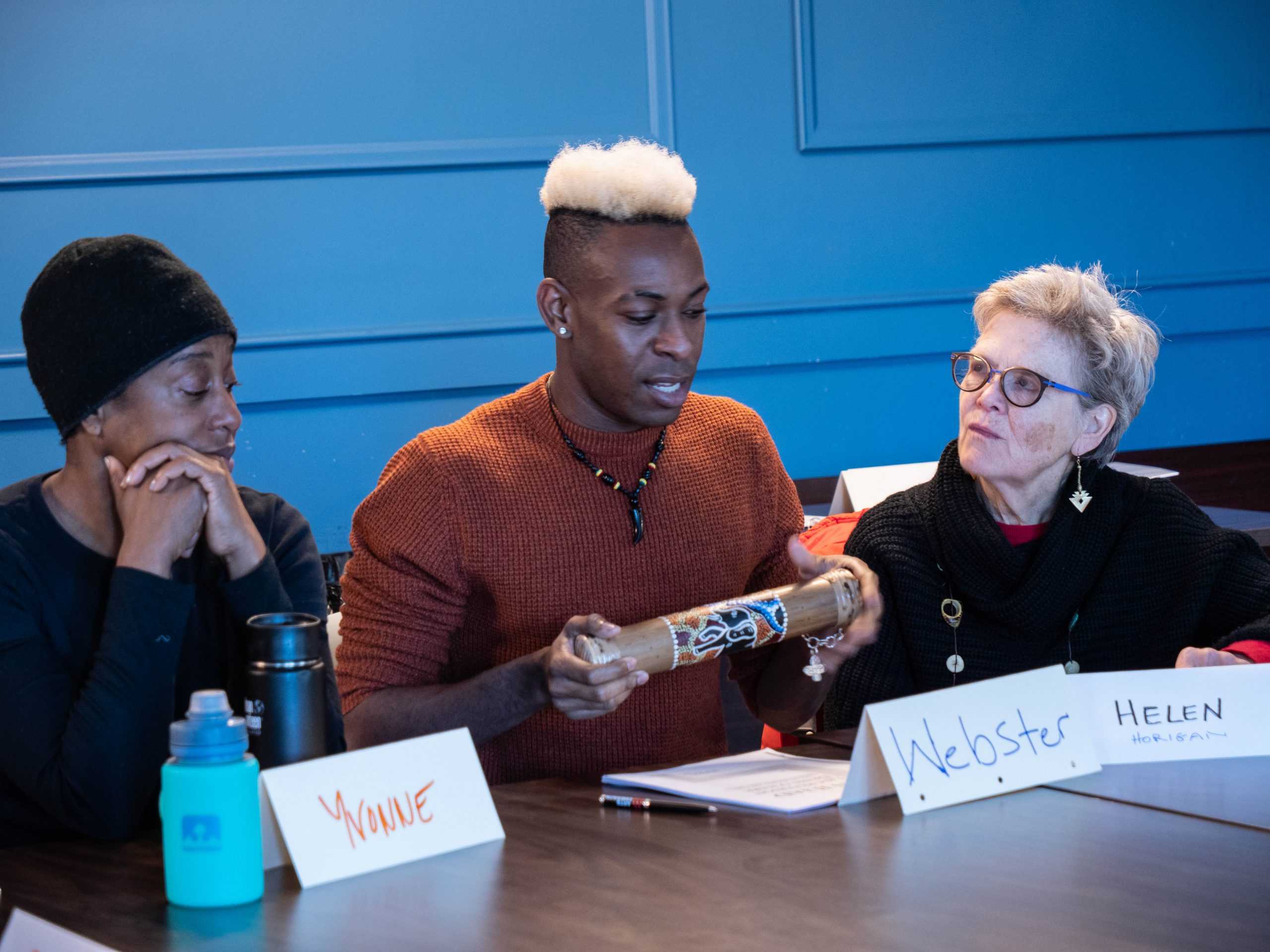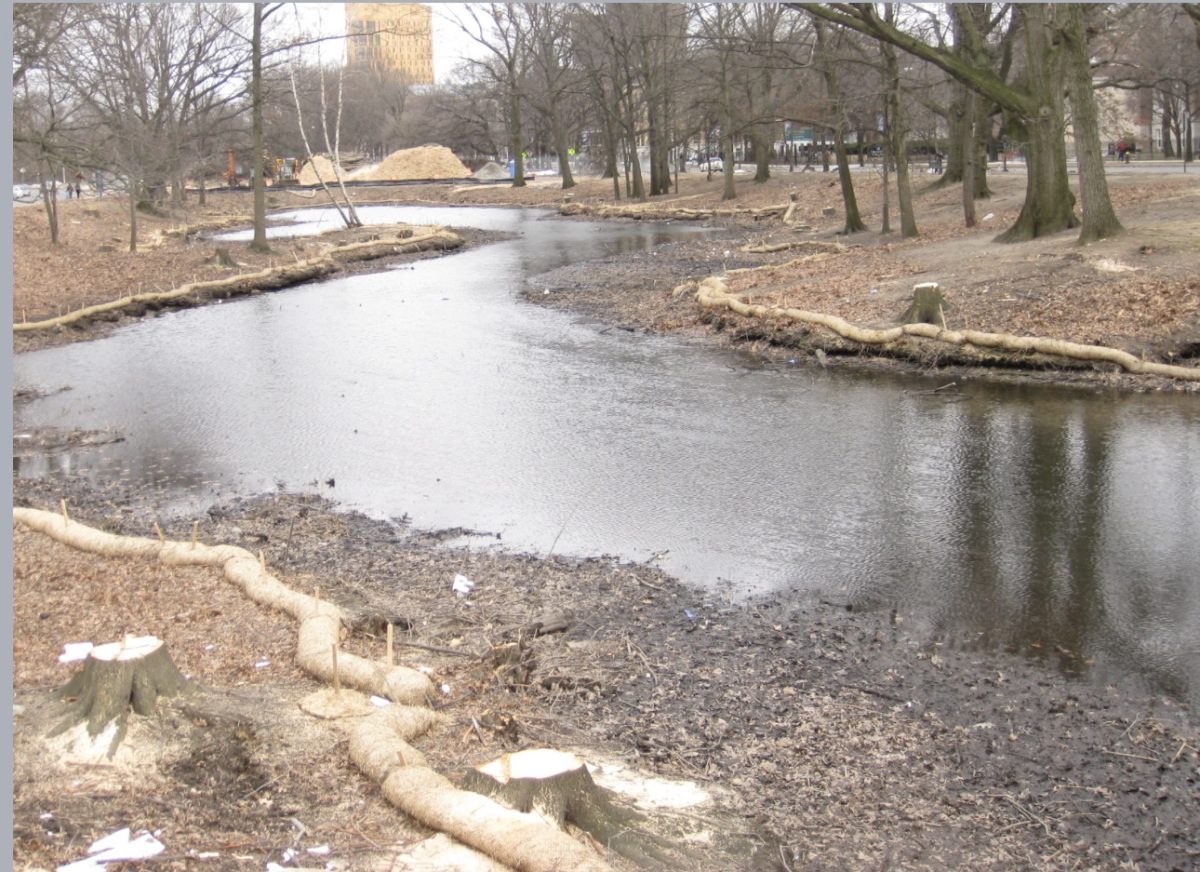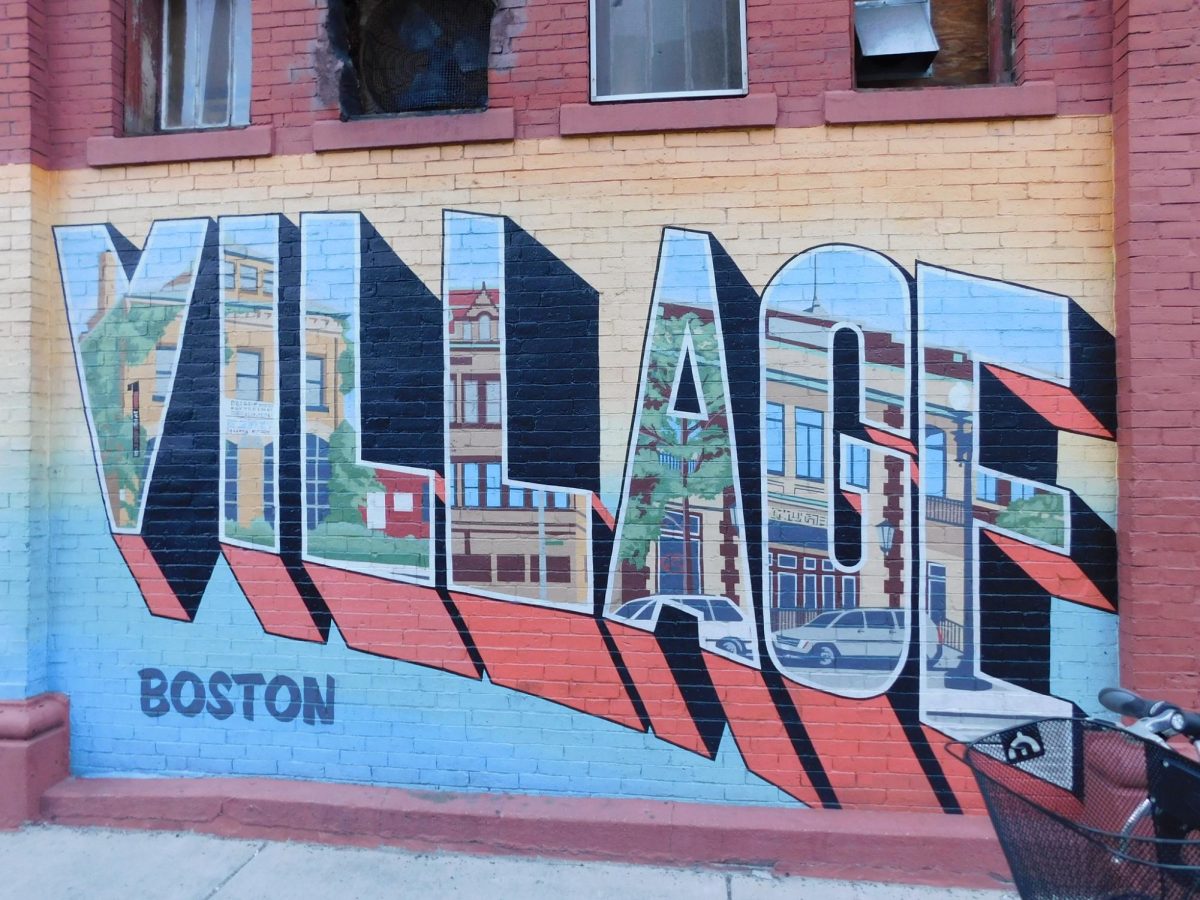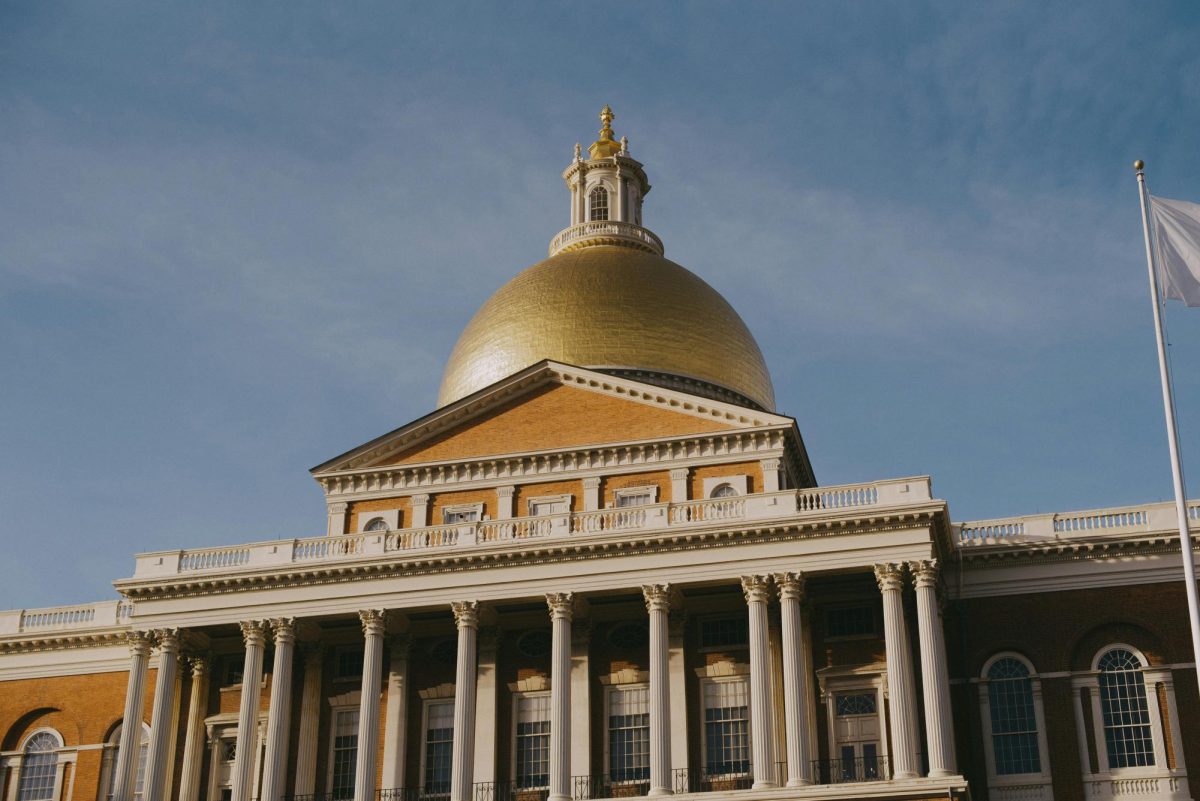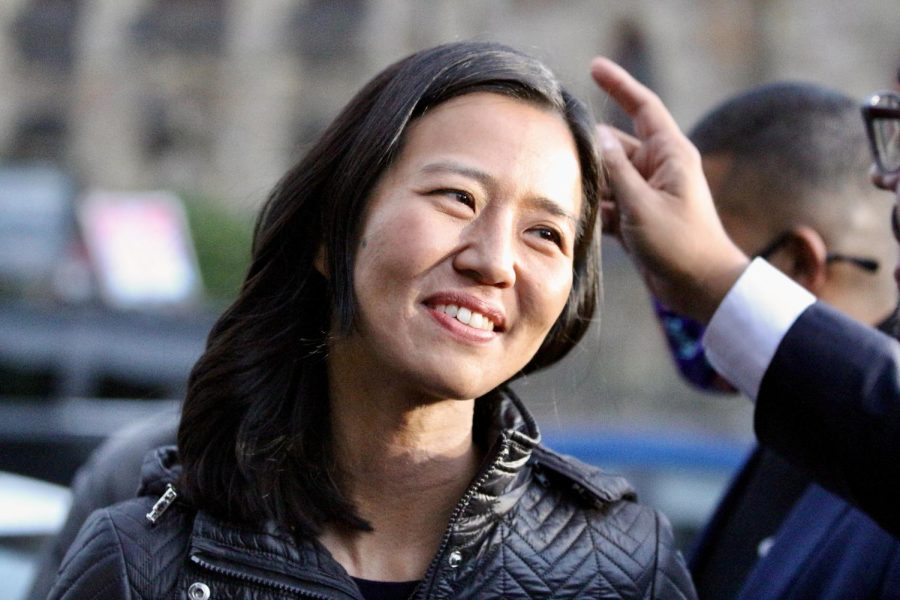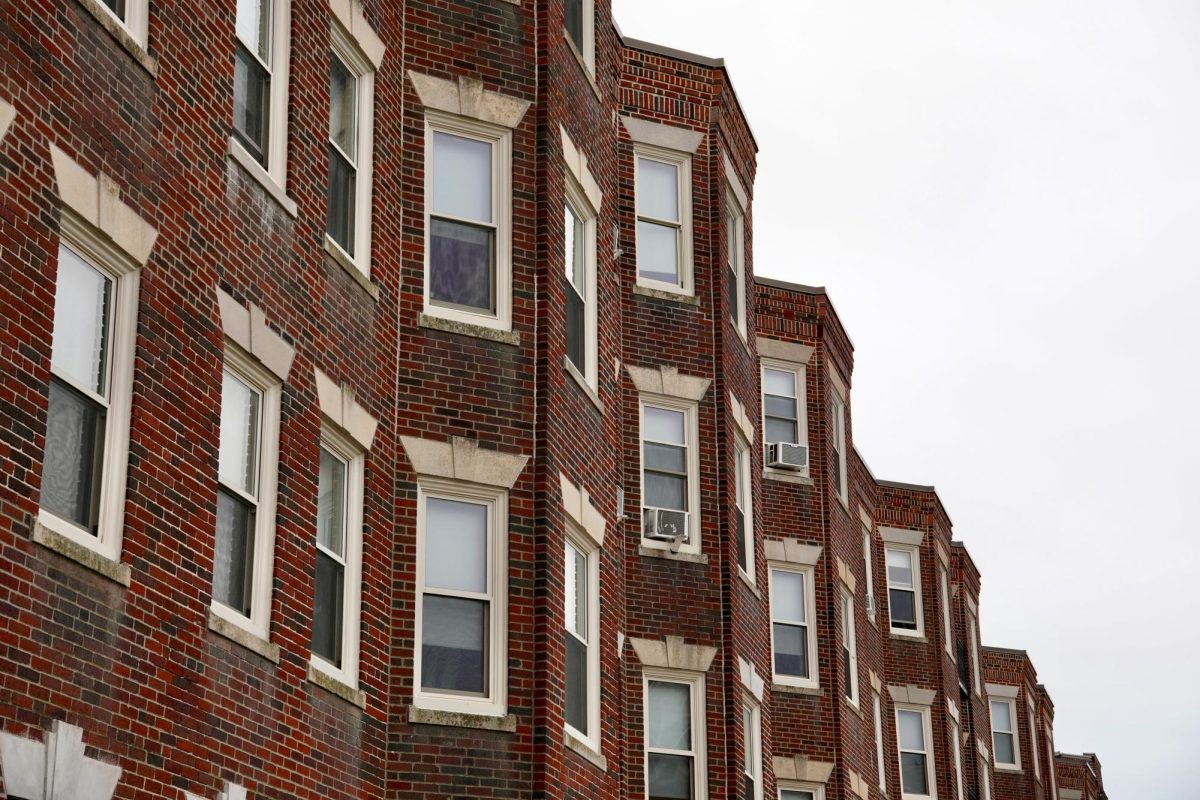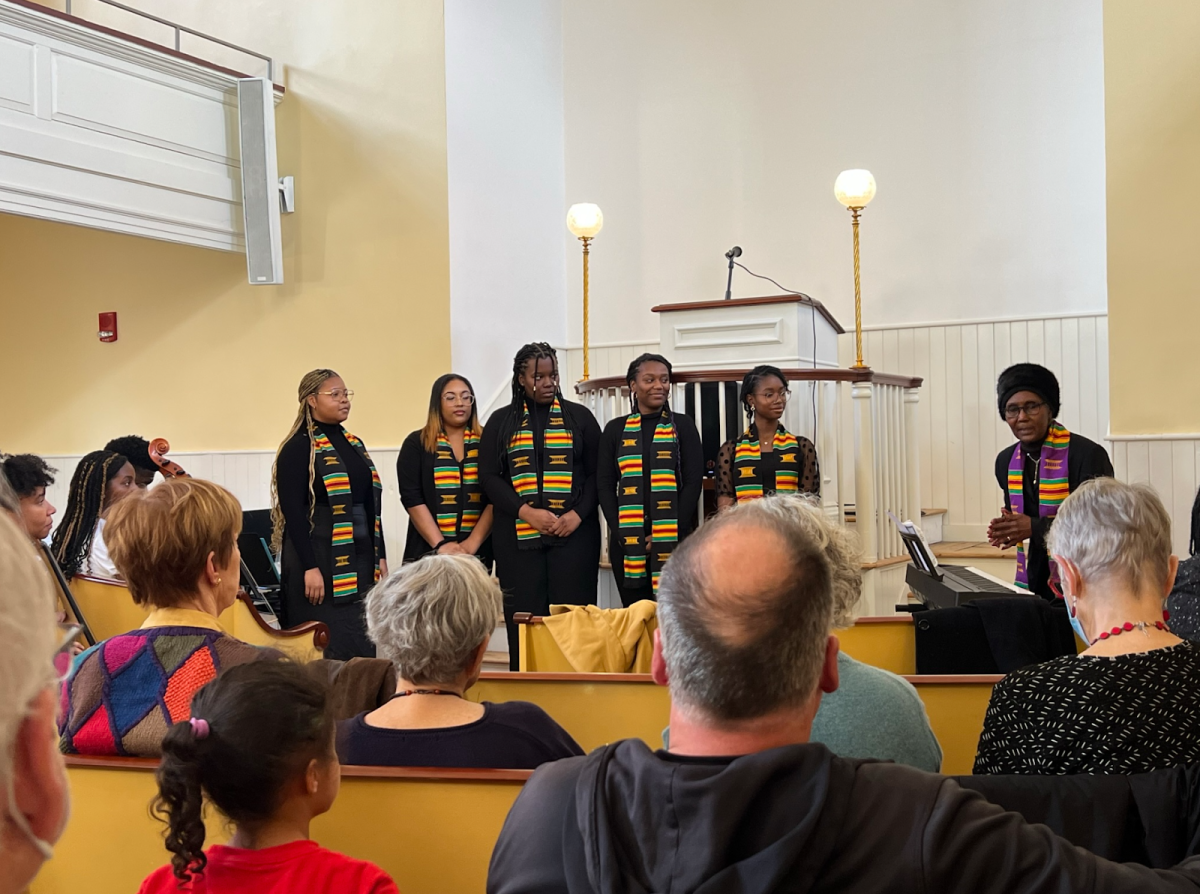The first Play Reading Book Club meeting of the season took place recently on a chilly afternoon in the senior lounge at the BCFY Vine Street Community Center in Roxbury. Inside the teal wainscotted room, new and returning members settled at the round table in the middle of the room. That day they’d be starting the first half of “An Iliad,” the one-man retelling of the final weeks of the decade-long siege of Troy.
At exactly noon, Webster McDonald, a teaching artist from the Emerson College Masters in Theater Education program and leader of the Vine Street group, quieted the room with a maraca fashioned after the Scepter of Agamemnon.
“Back in Jamaica, my grandmother would gather us up when the rain was pouring, the thunder was pounding, the lightning was flashing and she would tell us scary stories to get us to go to bed,” McDonald began.
Those stories, especially that of the rolling calf, a mythical creature in Jamaican folklore said to be the spirit of someone who during their lifetime was wicked, stuck with McDonald, driving him to become a practitioner, dancer, singer, director and storyteller leading the program that Saturday in November.
“It was her way of telling us: Don’t tarry,” he said. “That’s what storytelling is. It’s about community building and communicating in a way that is affecting, that is stirring.”
ArtEmerson’s Play Reading Book Club program has been bringing theater and theater education to neighborhoods across Boston for the past six years. Originally aimed at providing a space for black theater audiences, the success of the program has garnered an increasingly diverse membership.
“A lot of people are enjoying being able to be in a diverse room of people and having conversations that are diverse, not because they’re talking about one culture or the other but people are bringing their diverse experiences to their perspectives on the work,” said Akiba Abaka, the program director and associate producer at ArtsEmerson.
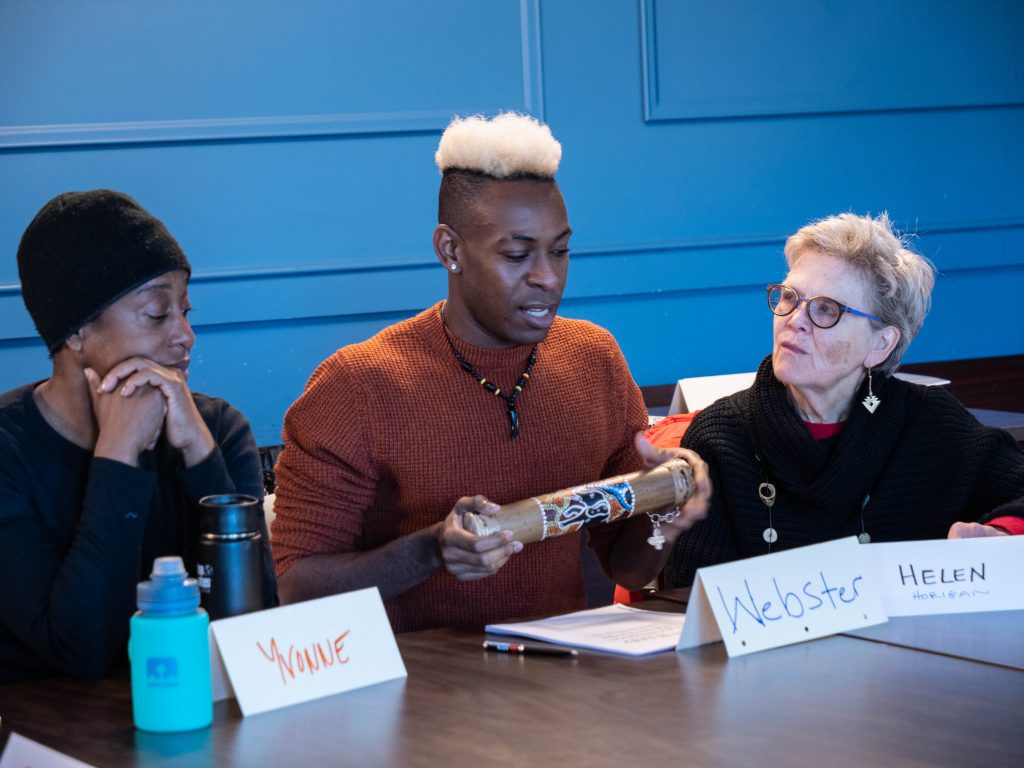
ArtsEmerson began the Play Reading Book Club following a series of initiatives designed to welcome diverse communities to the theater. However, Abaka came up with the idea for the Book Club years before coming to ArtsEmerson herself.
While running Up You Mighty Race Company, a social justice organization aimed at teaching people of the African Diaspora using arts as a tool toward community development, awareness and change, Abaka observed that many African American audience members were unfamiliar with the playwrights putting on productions.
The problem, she said, is that for the average theatergoer, knowing the playwright is a major part of the theater-going experience. “Familiarity with the aesthetic drives audiences to the theater,” she explained. This issue was one of the many she believed was keeping African Americans from going to and enjoying the theater.
According to the ArtsBoston Audience Initiative, a database of more than 1 million arts-going households in Boston, the makeup of the city’s cultural sector is not representative of its demographics. Cultural activities, especially in theater, music, dance and fine arts, are recorded as being disproportionately engaged in by whiter, older individuals. The database shows that 89 percent of art buyers — including patrons of performance arts tickets — are white, 74 percent are older than 45, and 67 percent make more than $70,000 a year.
Several programs, including the Play Reading Book Club, were born to remedy this observed disparity and as a contributing organization to The Boston Globe’s 2014 Game Changer winner ArtsBoston, ArtsEmerson has dedicated itself to an ongoing dialogue with its audiences.
Audience engagement and other issues are being discussed at length on Howlround, a theater commons platform for practitioners all over the world created and operated by Emerson College. The platform provides a place for theater-makers to share issues, ideas and resources that impact their work.
https://thescopeboston.org/features/jamaica-plain-ballerino-boston-ballet/
Dr. David Stevenson, head of division media, communication and performing arts at Queen Margaret University in Edinburgh, discussed the movement of cultural institutions toward audience diversification by targeting “cultural non-participants” in his essay on Howlround. Stevenson’s research has focused on strategic management of cultural organizations and widening participation in cultural policy processes. The idea that many cultural institutions around the world are attempting to remedy representational disparities in their audiences is unsurprising, he said, although the methods by which they do so should be considered.
For these organizations, he said, reaching out to “cultural non-participants” has not only become a way for institutions to create equity in their communities, but also as a way to respond to the implicit expectations of their funders.
According to Stevenson, who has been awarded for a thesis on the topic, many organizations wrongly assume that one of the biggest barriers for non-participants is disinterest, and focus their attention on outreach to otherwise impartial individuals as a method of correcting issues in audience diversity.
“As an educated, affluent white man no one really challenges me on my tastes and I have the resources to do what I like,” he said. “If I was not so privileged I would probably find that I was the target of a range of ‘outreach’ programs trying to change my tastes.”
By blindly committing outreach resources to non-participants, institutions are more likely to engage disinterested members of the communities they’re targetting. This practice is one of the many ways these institutions justify not providing sufficient resources or notice to interested members of underrepresented communities. For individuals who do show interest in these activities, barriers can range from insufficient finances, inaccessible transportation or lack of awareness, to fear of the unknown or lacking a friend to participate with.
One of the goals of the Play Reading Book Club is to demystify the theater-going experience by giving its members information about how to purchase tickets, where to find parking near the theaters and providing them with a network of Bostonians also interested in theater. Membership in the Book Club also affords them access to discounted tickets and opportunities to meet key figures involved in various productions.
The program takes place in four locations around Boston — Emerson Paramount Center in South Boston, West Roxbury Branch Library in West Roxbury, Jackson Mann Community Center in Allston, and the BCYF Vine Street Community Center in Roxbury, where the program began in 2014.
Over the course of four to five weeks, the Play Reading Book Club explores a play presented by ArtsEmerson by reading it aloud in a group setting, engaging in conversations about the implications of the text and discussing its dramatic structure.
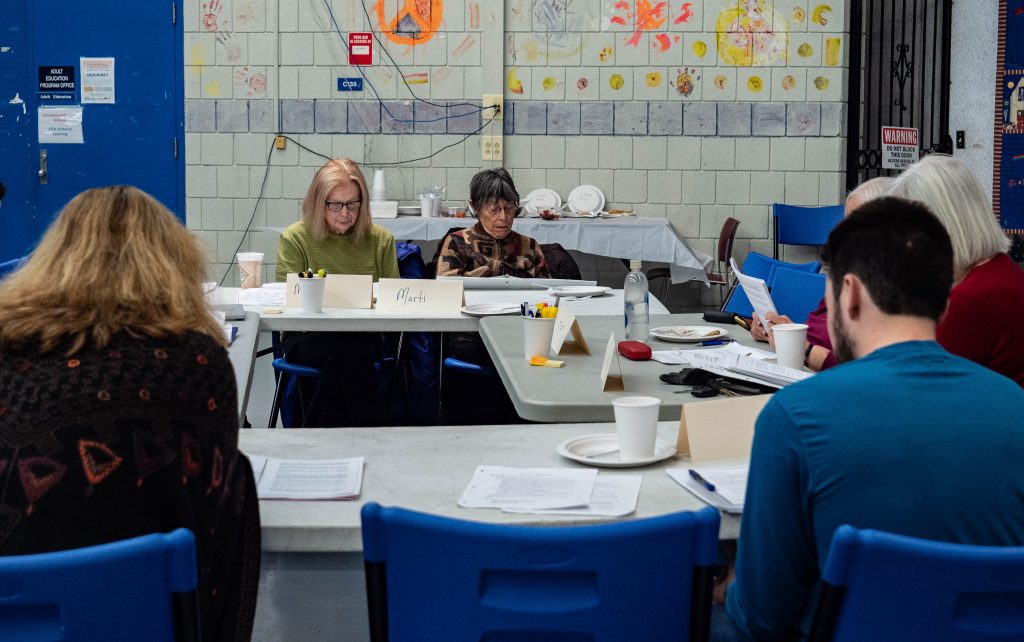
During the third week of the program, members are invited to Play Reading Book Club Night, where the program’s four branches come together to watch the play on opening night.
Hosted this year at The Ghost Walks, a bar at the heart of Boston’s Theater District just blocks away from the Emerson Paramount Theater, Play Reading Book Club Night gave members a chance to meet other members and teaching artists from neighboring programs, and present questions to Lisa Peterson, the director of “An Iliad,” and Rachel Hauck, the play’s scenic designer.
Later that night, members took their seats in the front rows of the Emerson Paramount Theater to watch Denis O’Hare bring to life the play they’d been reading over the past two weeks. After seeing the play, in the final weeks of the program, book club members shared their impressions of the play before creating and performing their own interpretations of “An Iliad.”
Registration for the spring is currently open for Play Reading Book Clubs discussing the upcoming shows “Detroit Red” and Kafka’s “Metamorphosis” at locations in Allston, Brookline, Dorchester, Roxbury and South Boston.
Passing around the Scepter of Agamemnon, the members of the BCFY Vine Street Community Center branch of the Play Reading Book Club set their intentions for the meetings to follow — outlining goals for themselves and rules for each other to help facilitate productive conversations.
“I’d like us to assume good intentions of one another,” said returning member Helen Horigan.
“It’s important that we stay open to new ideas and understand that we’re coming from different perspectives,” said Paula Elliot, who started with the Book Club when it began in 2014.
“I want to dare us to risk saying what is bubbling in our minds and hearts,” said Yvonne Murphy, teaching artist and co-leader of the Vine Street group.
Around the circle, they went. After their rules were set, McDonald showed the group a military recruitment video and together they read Martin Carter’s poem “This Is The Dark Time, My Love.” The opening discussion was about war, the main topic of “An Iliad.”
Then, on page one of the play, they began.

